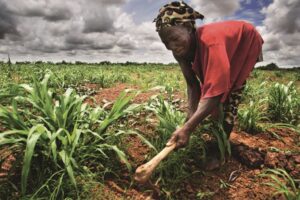FOCUS ON ZAMBIA: A Beacon Of Peace And Macro-Economical Stability For Africa
Zambia is boosting economic transformation in order to fulfil its Vision 2030 target of becoming a middle-income nation. Through its Seventh National Development Plan, the five-year plan currently underway (2017-2021), it aims at building a strong and diversified economy through the implementation of growth reforms and fiscal consolidation, with an in-depth focus on private sector investment in infrastructure and agricultural development. “The prospects of going forward are huge,” states Dr Denny H.Kalyalya, Governor of the Bank of Zambia. “For an investor looking for good returns, a peaceful and liberal environment, Zambia is the place to be.”
“By 2030, we want to see a Zambia where every citizen has access to safe clean water, food, decent housing, electricity, quality education and health services and decent jobs. In pursuit of this vision, we need to transform into a smart Zambia.”
President Edgar Chagwa Lungu
Infrastructure and ICT
‘Smart Zambia’ sees ICT as a key driver of socio-economic development and an essential tool to achieving Vision 2030’s goal. In 2018, the government launched a US$280 million project will add 1,009 communication towers to the hundreds already built and boost mobile penetration rates to 94%. “We believe it’s an enabler of business and commerce. We want to make sure that our service provision is on the back of ICT,” clarifies Hon. Brian Mushimba, Minister of Transportation and Communications. Support for technology is also strong in e-government, with an agenda aimed at modernising and automating payment and revenue collection processes. “The government agenda to come up with smart cities is going to help create demand for the ICT sector and is going to transform the culture of the nation in ICT,” declares Hai Telecommunications Managing Director, Samson Longwe.
The Green Revolution
President Lungu’s ‘green revolution’ is key to driving Zambia’s economy, contributing approximately 70% to its GDP and 10% to its economic growth. “This creates a lot of employment for our women and the youth,” affirms Michael Katambo, Minister Of Agriculture. “For production to be enhanced, the government is targeting all farmers and trying to get them to access financial institutions, so that they can access loans and buy small-mechanised equipment.” In an attempt to liberalise production of staple crops, including rice, millet and cassava, Zambia is also offering zero corporate tax for the initial five years from the first year profits that are made in the agricultural sector.
Building Electrical Alternatives
Hydropower constitutes 95% of the nation’s total power supply, however Zambia is intent on increasing the diversification of its energy sources to make its energy markets more competitive. “Ideally, we want to be the net exporter of electricity because as a landlinked country, it’s easy for us to import and export electricity,” claims Hon. Matthew Nkhuwa, Minister of Energy. “We want to build interconnectors for our neighbouring countries, so in the event that there may be a shortage, power can be tapped from alternative grids.” In late 2018, Zambia and Angola signed a US$5 billion deal to construct an oil pipeline that will pass through the two countries.
Geo-Location
On top of all this, Zambia’s breathtakingly beautiful and alluring geo-location has the enormous potential to become, according to Hon. Charles Banda, Minister of Tourism and Arts, “ one of the top five destinations in the world.” Managing Director of Zambia Airports Corporation Limited, Fumu Mondoloka confirms: “We are conveniently positioned to be the aviation and tourism hub we want to be.”
Industrialisation and Diversification
Key to Zambia’s path to macro-economic and peaceful stability is the nation’s industrial agenda. Privatisation and strong mineral prices have boosted the country’s mining activities over the past few years and the government has consequently invested heavily in building its private sector and other industries. “It is vital to structure an effective fiscal regime for the mining sector to ensure that Zambians benefit from the mineral wealth our country is blessed with,” emphasises Zambia’s Minister of Finance, Hon. Margaret Mhango Mwanakatwe. Furthermore, US$21.7 million have been invested in various Multi Facility Economic Zones and Industrial Parks in the country in order to create a platform for Zambia’s economic development by attracting FDI through robust policy and incentives, emphasising industrialisation and diversification. Zambia’s promoter of trade and investment, Zambia Development Agency (ZDA), recorded US$3.9 billion of projected investment in 2018 in a number of sectors of the economy with a focus on diversification. Hon. Dora Siliya, Minister of Information states: “I think diversification opens up whole new opportunities in tourism, agriculture, ICT and the energy sector.” There is no doubt that Zambia is in the process of unlocking its enormous potential to become a regional hub in a number of sectors. As Vice President, Hon. Inonge Mutukwa Wina affirms: “To business people and investors alike, the certainty of peace, tranquillity and unity in diversity are combinations that make Zambia stand out in the eyes of the commercial world.”




